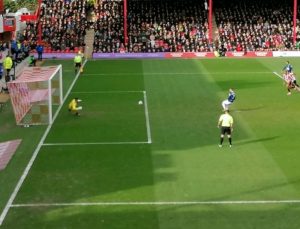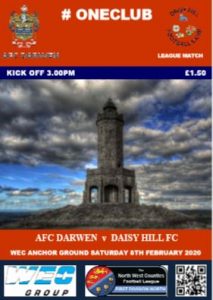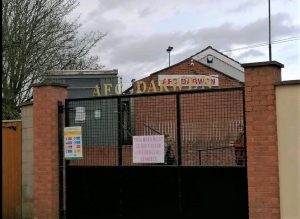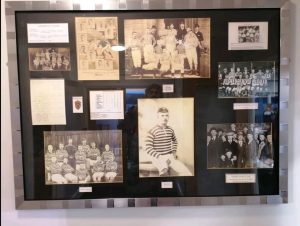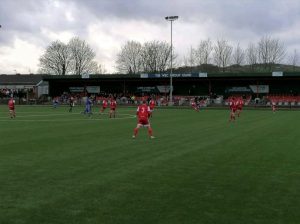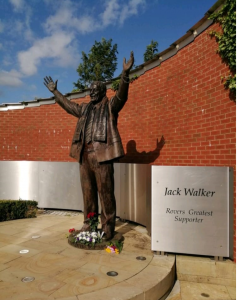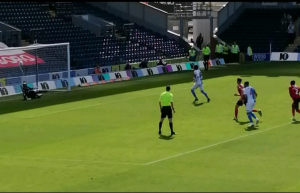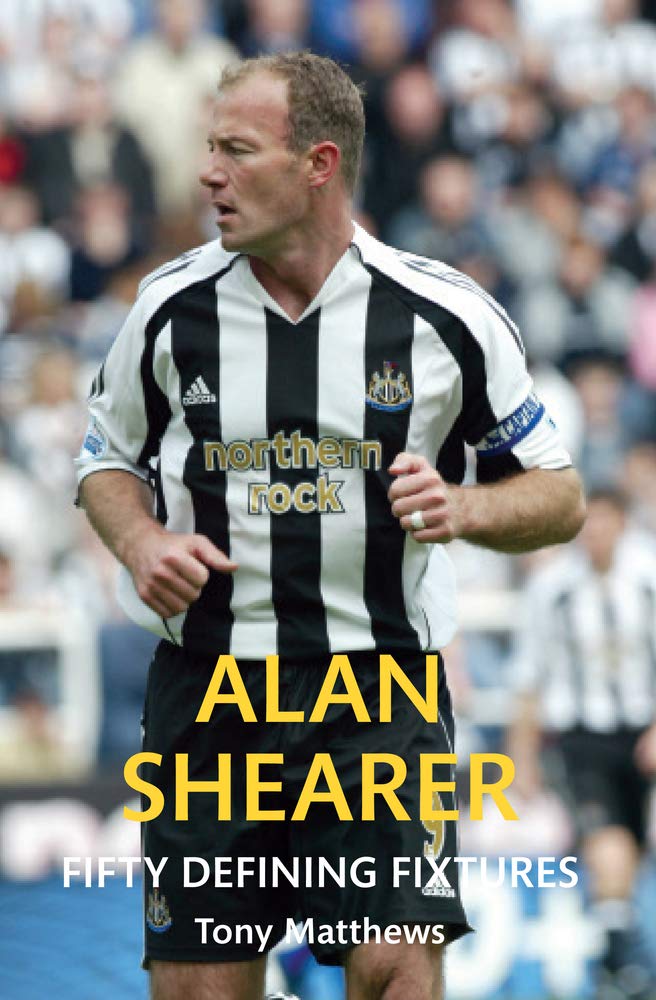Book Review – Fast Forward: The Autobiography: The Hard Road to Football Success by Andrew Cole
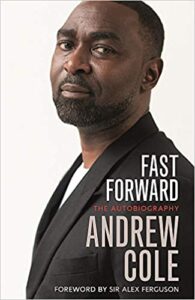 When it comes to football, there are some players who remain, either through sporting posterity or perhaps through wilful self-promotion, front and centre in fans’ consciousness and other who fade, rightly or wrongly, into the background. For many Manchester United fans, I imagine Andrew Cole is forever etched in their memories, part of the historic 1999 treble-winning squad, but for all of that success, for neutral fans he is probably not as well-remembered as other players of that generation, team-mates like Scholes, Giggs and Keane, and even his strike partner Dwight Yorke. Yet, he remains the third-highest goalscorer, behind only Alan Shearer and Wayne Rooney, in Premier League history, with 187 goals, as well as being joint-top goalscorer with 34 goals in a 42-game Premier League season, and the first player to top both the Premier League goalscoring and assists charts in the same season. Add to this, a clean sweep of trophies, including five Premier League titles, two FA Cups, two Charity Shields, a League Cup and, of course, that iconic Champions League, as well as PFA Young Player of the year.
When it comes to football, there are some players who remain, either through sporting posterity or perhaps through wilful self-promotion, front and centre in fans’ consciousness and other who fade, rightly or wrongly, into the background. For many Manchester United fans, I imagine Andrew Cole is forever etched in their memories, part of the historic 1999 treble-winning squad, but for all of that success, for neutral fans he is probably not as well-remembered as other players of that generation, team-mates like Scholes, Giggs and Keane, and even his strike partner Dwight Yorke. Yet, he remains the third-highest goalscorer, behind only Alan Shearer and Wayne Rooney, in Premier League history, with 187 goals, as well as being joint-top goalscorer with 34 goals in a 42-game Premier League season, and the first player to top both the Premier League goalscoring and assists charts in the same season. Add to this, a clean sweep of trophies, including five Premier League titles, two FA Cups, two Charity Shields, a League Cup and, of course, that iconic Champions League, as well as PFA Young Player of the year.
Whilst Andrew Cole’s records therefore clearly place him amongst the Premier League’s elites and deserve acclaim, he is not one for the fame and spotlight. A more introspective and private footballer, not one of the game’s flamboyant characters or over-the-top personalities, he explains in his autobiography how this was often interpreted as aloofness and arrogance, and this perhaps has contributed to him not always being centre-stage in discussions of the Premier League and footballing past. He is simply just not your flashy showman, hogging the limelight, not the open book of some of his peers, so it is fascinating to literally now open that book and get to know more about this often misunderstood and more private of men in his autobiography, Fast Forward.
In true autobiography fashion, the book takes the reader on a chronological journey of Cole’s life, giving an eye-opening portrait of a self-proclaimed naughty, difficult child. There is a real sense of the development of his character and personality in his younger years, flaws and all. And it is clear that while Cole was rebellious, stubborn, defiant, he was also determined, ambitious and steadfast – characteristics that would go on to shape his career, both for better and worse. For me, his reflections back on his life as an adolescent teenager at Lilleshall were unsettling and hopefully a far cry from experiences of young footballers today, but they were simply part of the culture and sport in that period.
Though he covers, too, his experiences at Arsenal and Newcastle, it is really with Man United that Cole is synonymous, and it is obvious in his reflections on this period and club in particular that this was the defining point not only in Cole’s career but in the shaping of his footballing education and beliefs. Everything that precedes and follows it is viewed in comparison; for this was the Manchester United under Alex Ferguson at the turn of the millennium that led the way in football on many fronts. His experiences that followed at Blackburn are only made all the more unfavourable given his United schooling, and the seven years that succeeded his six-year spell at the Theatre of Dreams are largely limited to brief summations, often of the difficult experiences and relationships that blighted his later years in football. Several big names – and some of those media-savvy personalities – don’t come out particularly favourably, but perhaps one of the more divisive figures in football, Roy Keane, emerges wholly agreeably – which may not go down well with the man himself, but serves to remind readers that we only see one side of these footballers. With Cole’s frankness about his professional relationships, and his headstrong approach, there is a sense of wondering whether this affected his career, both domestically and internationally, as accounts of his limited England days are also included.
When Cole hung up his boots in 2008, the fact that he is not one of those players who courted the media would have seemed to allow him to retire in relative peace, but his biggest challenge of his life then faced him off the pitch as he suffered kidney failure, leading to a transplant in 2017. Oftentimes, footballers can come to be seen as invincible, but Cole’s horrific health struggles, which he details frankly, are a reminder that footballers are human and vulnerable too.
As someone happy to step away from the spotlight after football, Andrew Cole in many ways has become something of the forgotten man of English football when his record should arguably guarantee his legacy, but his autobiography throws up a really interesting question about how personality and attitude are judged alongside ability. For me, what I remember of Cole is his goalscoring instinct, and his uncanny partnership with Dwight Yorke – in many ways, they were the archetypal strike partnership – but what this book makes clear is that football, and particularly legacy, is not only about what happens on the pitch, it is also, perhaps now more so than ever, shaped by the narratives and personalities that are constructed beyond it. Cole may not be the most gregarious or colourful of characters, he is more nuanced and complex, more human perhaps. He suffers and struggles like all of us, and his health battles make that all the more emphatic. But whatever his character, his personality, judged on the pitch, on his records, his trophies, Andrew Cole deserves his place alongside Shearer, Rooney et al, and that’s something that shouldn’t be forgotten.
Jade Craddock
(Hodder & Stoughton. November 2020. Hardback 336 pages)
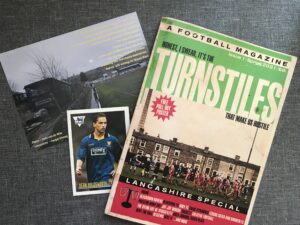

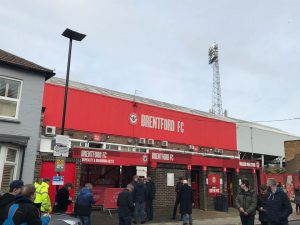
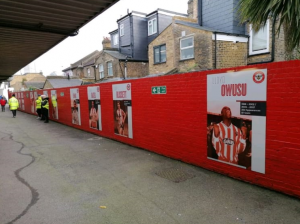
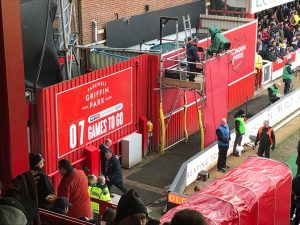 Of the game itself, The Bees backed by a vociferous home crowd started the better of the two teams. However, Brentford were done by a ‘route-one’ goal on eleven minutes. Visiting ‘keeper Christian Walton launched a huge kick downfield aided by the wind, which Bees defender Ethan Pinnock completely misjudged and allowed Adam Armstrong to cleverly lob over David Raya to give Rovers the lead. Brentford though responded and Walton was forced into a save from Bryan Mbeumo. Blackburn though were dangerous on the break, through goal-scorer Armstrong, whilst The Bees had had to settle for mass possession and the odd half-chance, with a Mbeuemo header from a corner going narrowly wide. Rovers though were happy to sit back and were content to go in 1-0 up at half-time.
Of the game itself, The Bees backed by a vociferous home crowd started the better of the two teams. However, Brentford were done by a ‘route-one’ goal on eleven minutes. Visiting ‘keeper Christian Walton launched a huge kick downfield aided by the wind, which Bees defender Ethan Pinnock completely misjudged and allowed Adam Armstrong to cleverly lob over David Raya to give Rovers the lead. Brentford though responded and Walton was forced into a save from Bryan Mbeumo. Blackburn though were dangerous on the break, through goal-scorer Armstrong, whilst The Bees had had to settle for mass possession and the odd half-chance, with a Mbeuemo header from a corner going narrowly wide. Rovers though were happy to sit back and were content to go in 1-0 up at half-time.